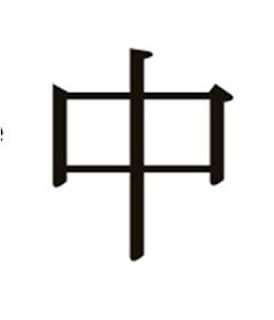Another reason I am up late blogging is that after I got access, I uploaded 214 pictures to Picassa and captioned them -Tienanmen Square, and the school we visited today. So, I am back to blogging, 2 days worth.
Thursday in Beijing, June 3:
We had another lecture and discussion in the morning with a sociologist from Beijing Normal University, Dr. Zhao Mengying. He talked about China's movement toward modernity - a new lifestyle based on industrialization. In 1840 the Opium Wars were the beginning of changes in China. As China's culture suffered under foreign pressures, the Chinese begin to emphasize socialism to protect their way of life. The Sino-Japanese war increased patriotism and feelings of nationalism in the Chinese people. Then in 1949 the Revolution occurred, and a new way of life began in earnest. Dr. Zhao talked about the differences in rural and urban areas, how the government struggles to deal with the differences, and the changing relationship between the two.
I was mostly interested in the migration of rural people to the cities, and the hukou system that restricts movement. In China the government owns all the land. If you live in a rural area you get an allotment to work, and that provides for your economic security. Theoretically, if you move to the city you must give up your land, because city people get a type of social security to provide for their needs. However, in practice, it restricts the movement of people from rural areas to the city so that the cities will not become overcrowded and filled with slums, like Rio or Calcutta. Between 1952 and 1980 China's urban population rose from 11 to 19%, while by 1980 the rest of the world 's urban population was 42%. But in reality many people move to the cities, so although it is not "illegal" for them to do so, their children are not entitled to go to school there as they don't have the proper permits. Recently Beijing decided to allow migrant workers' children to attend school, but those migrant schools are not well funded. The government is working on a new system, sort of like our 'green card', so that if you can prove you've been in the city for several years you can get a permit to live there and be legal.
One other thing I found really interesting about the land ownership is that even in the cities the government owns all the land, so when you buy a house you sign 2 contracts - one for the house, and one with the government to rent the land for 70 years. This is relatively new, so no one has any idea what will happen in 70 years when the rental agreement expires.
After lunch we took the bus with blue-tinted windows to Tienanmen Square and the Imperial Palace Museum. What can I say but OMG.
 which represents the balance, and the line is the heart. The Emperor's throne is on the heartline, right in the middle of Beijing. The student told me that when you say someone "has his heart in the middle" it means he's a good guy, who wants to do the right thing and have people like him.
which represents the balance, and the line is the heart. The Emperor's throne is on the heartline, right in the middle of Beijing. The student told me that when you say someone "has his heart in the middle" it means he's a good guy, who wants to do the right thing and have people like him.The old city walls are gone, torn down by Mao to make way for modernization, but the idea remains.
Tienanmen Square is across from the palace, and it, too, is enormous. Both the palace and the square were filled with Chinese tourists who were enjoying their national treasure. Families, kids, young and old, savoring the late afternoon sunshine and basking in national pride. Our guide told me 1.3 million people filled the square for celebration recently. It was also sobering to remember another anniversary today, June 5 - that of the Tank Man and the protests in 1989.
By the time we arrived back at the hotel we were exhausted. Since we had no Internet access most of us turned in early.
I'm giving up on blogging tonight - it's 1:30 am, and I have to get up early for our trip to the Great Wall. I'll try to write more tomorrow night.
be safe, enjoy the weekend,
rem
No comments:
Post a Comment